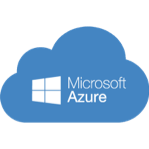-

How Much it ll cost to build an app like
- Cost to develop an Uber Tow Truck App
- Cost to develop a Pest Control App
- Cost To Develop a Handyman App Like Uber
- Cost To Develop a Doctor Appointment Booking App
- Cost To Develop An App Like MoodBites
- Cost To Develop An App Like SkipTheDishes
- Cost To Develop An App Like Q Chat
- Cost To Develop An App Like TickTick
- Cost To Develop An App Like ContractBook
- Cost To Develop An App Like Utter
-

How Much it ll cost to build an app like
- Cost to develop a Video Editing Mobile App like Magisto
- Cost to develop a Live Video Streaming App like Twitch
- Cost to develop an app like Home Workout- No equipment
- Cost to develop a Sports News app like theScore
- Cost to develop an Application like Reddit
- Cost to develop a Sports News app like theScore
- Cost to develop an E-learning platform like Udemy
- Cost to develop an On Demand Doctor App like Heal App

Choosing the Right CRM for Your Business
Introduction
The COVID-19 era has influenced all B2B and B2C businesses to a digital platform. When the pandemic accelerated the shift towards digital transformation, CRM became even more critical by creating new challenges for businesses in managing customer relationships.
CRM systems have become vital as they provide a centralized platform for managing customer interactions, communication, and data. They help businesses stay ahead of their competition, maintain customer trust, and comply with new health and safety regulations.
While there were several benefits of integrating CRM solutions into your business, CRM was known to be a complex system that is difficult to accommodate within the IT strategies and working habits. However, today CRM technology has evolved over the years, making the integration process smooth.
Nevertheless, it is more difficult for businesses to select the best CRM software because of the split in the market between software and cloud services. These issues are exacerbated by expansive feature sets and vertical bundles created for particular businesses.
With so many options, you must learn what CRM solution companies offer and what characteristics can influence your decision to select the perfect CRM for your business solutions.
CRM Features
The top 4 CRM features to consider when choosing a CRM system are:
Contact and Lead Management
Contact and Lead Management are critical components of a CRM system. The Contact Management feature is a centralized database that stores all customer information, including personal details, communication history, and sales opportunities. This information can be accessed and updated by sales, marketing, and customer service teams, ensuring that everyone has a complete view of the customer.
The Lead Management feature is designed to help organizations manage and track potential sales opportunities. Potential customers become leads when they express interest in your product or service. Through Lead management, organizations can keep track of, score, and order leads according to how likely they are to become paying clients. Lead data can also be used to personalize marketing efforts, providing a better customer experience and increasing the chances of conversion.
Cloud-Based Deployment
The term “cloud-based deployment” refers to delivering CRM software in which the program and the data it contains are stored on remote servers and accessed online rather than installed on a local computer or server. Unlike traditional deployments, which demand a substantial capital commitment, cloud-based CRM software is paid for over time.
Cloud-based deployment of CRM software provides organizations with flexible, scalable, and cost-effective access to customer relationship management capabilities.
Marketing Automation
Marketing Automation is a feature of CRM software that helps organizations automate and personalize their marketing activities. With Marketing Automation, businesses can streamline repetitive tasks, such as email campaigns, social media posts, and advertising, freeing up time for other strategic activities. You can also manage customer inquiries, support tickets, and interactions, such as live chat, phone, and email.
Analysis and Reporting
Analysis and Report Management is a feature of CRM software that provides organizations with insights into their customer data and the effectiveness of their marketing and sales activities to make informed decisions and improve their overall business performance.
Factors to consider while choosing the Right CRM for your business
Finally, after learning the CRM features, we should know what elements we should keep in mind while determining the right CRM for your company:
User requirements
To make sure the CRM satisfies its objectives, pinpoint the precise demands and wants of your sales, marketing, and customer care teams. It is important to consider business needs before choosing a CRM system because a CRM system is a significant investment and can have a substantial impact on your business operations. A CRM that needs to be correctly aligned with your business needs can result in wasted resources, decreased productivity, and a negative effect on customer satisfaction.
Integration
A seamless integration process can save you a whole lot of troublesome procedures. Consider how well the CRM integrates with your business’s other systems and tools, such as email, marketing automation, accounting software, and other third-party software.
Customization options
Evaluate the level of customization available to tailor the CRM to your business processes and workflow. The sales system can be a priceless asset for the business if it can be tailored right down to the level of each user. Software that can provide insights into your data through comprehensive reporting is necessary to increase your profitability.
User interface and ease of use
The adoption of CRM is one of the biggest challenges. Ensure that the CRM is user-friendly, easy to navigate, and has a clean interface to encourage widespread adoption. Many CRM companies offer a free trial. It will be a quick and smooth transition if you use the CRM for three to four weeks to understand if it meets your needs.
Reporting and analytics
One of the reasons to use a CRM system is that it can provide you with in-depth reports on anything from client happiness to the efficiency of your customer service team. Consider the reporting and analytics capabilities of the CRM to gain valuable insights into customer behavior and track sales and marketing performance.
Scalability
Another question to ask while picking a CRM is: Will it be simple to add users as your business expands? Choose a CRM that grows with your company and adapts to your evolving needs.
Security and Data Privacy
Customer data is often sensitive and confidential; protecting that data is essential to maintain customer trust and comply with data privacy regulations. Ensure that the CRM has robust security measures and recovery mechanisms to protect, secure, and keep your customer data confidential and complies with data privacy regulations, such as GDPR, HIPAA, and others, ensuring that your business complies with the law.
Support and training
Every new product or service implementation requires support from time to time. Consider the vendor’s level of support and training, including online resources and dedicated customer support.
All top CRM providers include a database of qualified developers, which makes it simple for businesses to set up the software and address any issues that may arise.
Cost
The cost of any company investment is a huge deal for small or medium-sized businesses. Evaluate the total cost of ownership, including upfront costs, monthly or annual fees, and any additional costs for customization or integration of the CRM technology you will opt for.
A CRM system can help a company analyze and manage data and customer interactions throughout the customer lifecycle to improve customer relationships and drive sales growth. Therefore, selecting a CRM that adapts to your changing work environment and IT technologies is crucial.
After reading this article, we hope you have a clear idea on what basis to select CRM software for your business.
To summarize, choosing a CRM can be lengthy, and the key to implementing the right CRM is to consider and evaluate the solutions your business needs. With the help of the above article, proper research and assessment can guide your decision-making.
Choose the best CRM system for your business model, as the right CRM solution will be instrumental in your company’s growth.

Author
Our Partners




WhatsApp us


